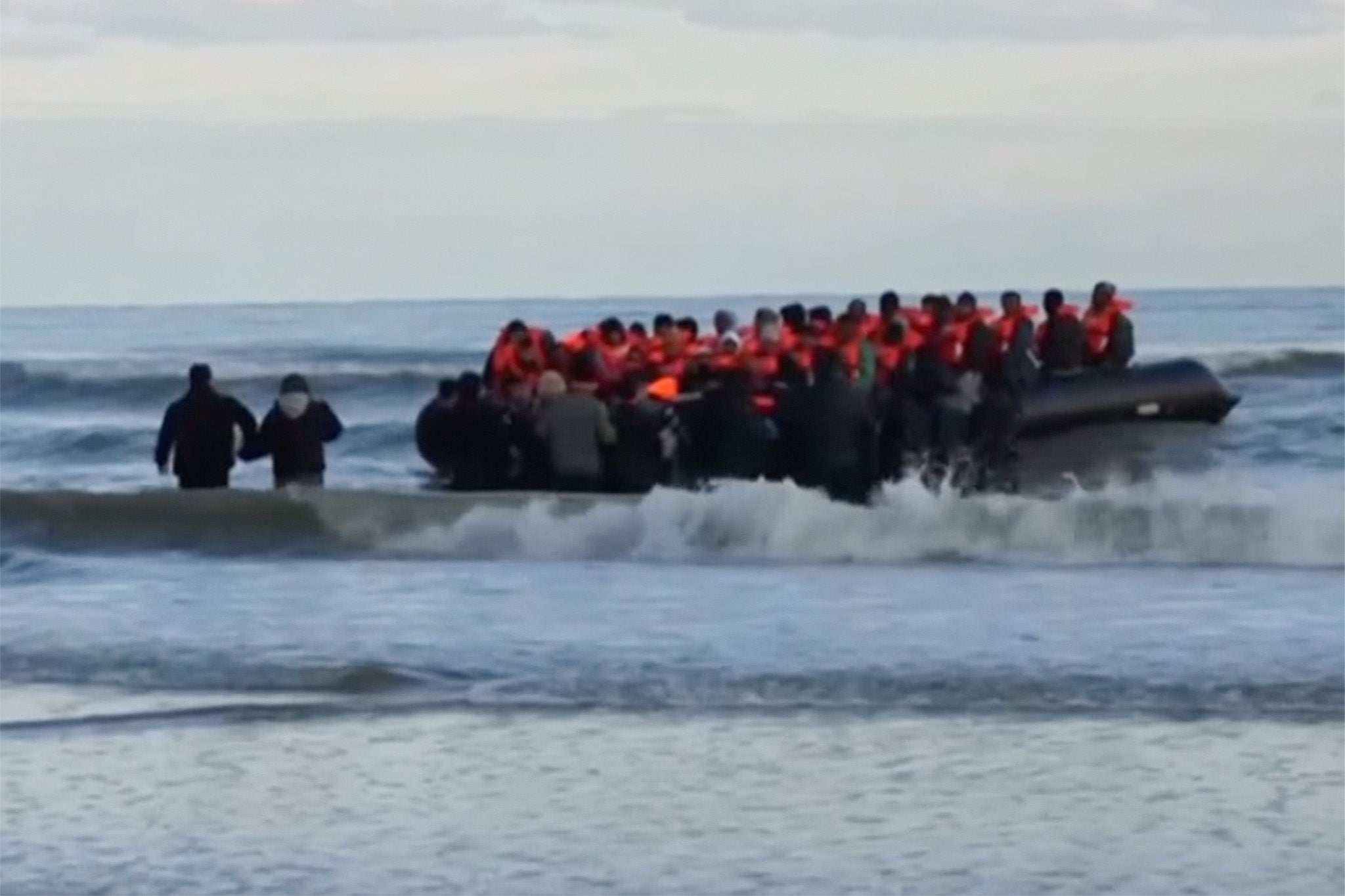‘Stop the boats’ is an idle refrain – it is time for the Tories to stop the boasts…
The government’s Rwanda bill was cleared by the House of Lords just hours before another tragedy in the Channel. At every stage, it has proven to be a disgrace to our parliament, says Lord Alex Carlile


Monday 22 April was a memorable day in the House of Lords – though not in a good way.
It was the final instalment of debates on the Safety of Rwanda (Asylum and Immigration) Bill, which has now been passed as an act. Yes, the debates followed the usual level of courtesy between colleagues holding deeply opposed views, a style that marks out the Lords as one of the world’s best debating chambers. The House did its job of trying to improve the bill to the standard of clarity and legality expected of our parliament.
Certainly, we tried. However, we succumbed eventually to a convention – that our House ultimately does not defy the majority in the Commons.
Certainly, we could have disembowelled the bill completely in its tracks by a simple procedural device with the complicated name “double insistence” – but the Labour opposition was unwilling to take that course of action, one that has been taken only four times in the past 75 years.
As a non-party, crossbench peer, I could see good reasons for blocking the bill. From top to bottom, it is a disgrace to our parliament. Privately, many Conservatives have confessed discomfort with it, pandering as it does to the unattractive political battle by the party to rescue votes from the growing threat they face from Reform UK.
Why is it disgraceful? Because it is built on untruth, starting with the bill’s title. It offers neither “asylum” nor “immigration”. It bans the affected individuals from claiming either. If they have been trafficked to our shores in small boats, they are disqualified from making any claim, however strongly merited and otherwise lawful. A new pariah status is created.
Next, the government asserts that Rwanda is a safe country. That presumption of safety is binding, even if the relevant secretary of state changes their mind and concludes otherwise. No court will be allowed to receive any evidence that Rwanda is not safe. Yet the UK Supreme Court has held that, in one important element, Rwanda is not a safe country.
Also, there is a treaty between the UK and Rwanda, the basis of which requires full compliance with agreed measures before safety can be demonstrated. Some steps have been taken to comply with the treaty, but the very basis of the presumption is untrue.
On Monday, crossbench peers tried very hard to give parliament some supervision over this, but ministers refused to agree that they should be required to make simple statements (founded on independent scrutiny) declaring that Rwanda is safe or not safe, as the case may be. The government’s intransigence on this safety issue is worrying as well as arrogant.
So we are left with an unaccountable act of parliament wrapped up in whopping deceit.
Will it stop the boats? This is surely one of the most highly publicised policies of any UK government. Look up any related subject on the internet and “Rwanda” looms large. Yet this has not discouraged the boats: this year, the numbers are up on last year. This morning’s tragedy off the French coast demonstrates that they are more prolific than ever.
“Stop the boats” has become an idle, unevidenced refrain. It is surely time to stop the boasts, and find policies that will really work.
Of course, to reach Rwanda the passengers have to be placed on an aircraft and transported to that country. Pressed on the subject, the Lords minister refused to corroborate Rishi Sunak’s claim that a contract is available for the transports, and that pilots are willing to fly aircraft in which passengers are handcuffed to their seats and unwilling to fly.
Then there is the cost. Two weeks ago, we were told that a maximum of 300 people would be transported under the new law – 1 per cent of the total number of unprocessed claimants – at a cost of £2m each, nearly £600m in total. This is an irresponsible waste of public money.
As Yvette Cooper, the shadow home secretary, has said, it would be wiser to spend that money on dealing with the criminals who lure the refugees, some to a foreseeable death in the Channel, and to repair the current government’s culpable failure to foresee and provide sufficient administrative staff and tribunal hearings to deal with the ever-increasing backlog of recent years.
Another regrettable component of this bill is that it deprives individuals of access to our well-established processes for bringing admissible disputes to the courts, and defies international human rights law. This is founded on another untruth: that the European Court of Human Rights is a “foreign court”, as Mr Sunak has repeatedly claimed.
Sure, it’s not a domestic court. It is a reputable, busy and successful international court, to which we subscribe via our membership of the Council of Europe. Our own government relies on the council’s convention, the ECHR, many times every year, in national and international courtrooms. That the UK is a law-abiding country is central to the success of our huge legal services industry and our courts. This act is wanton and contumelious defiance of our legal obligations.
I believe that the new law will unravel in the months to come. I shall take no pleasure in that. I just wish that the government had been a little wiser and more honest with itself, and with parliament.
Lord Carlile of Berriew CBE KC is a crossbench peer
Join our commenting forum
Join thought-provoking conversations, follow other Independent readers and see their replies
Comments
Bookmark popover
Removed from bookmarks